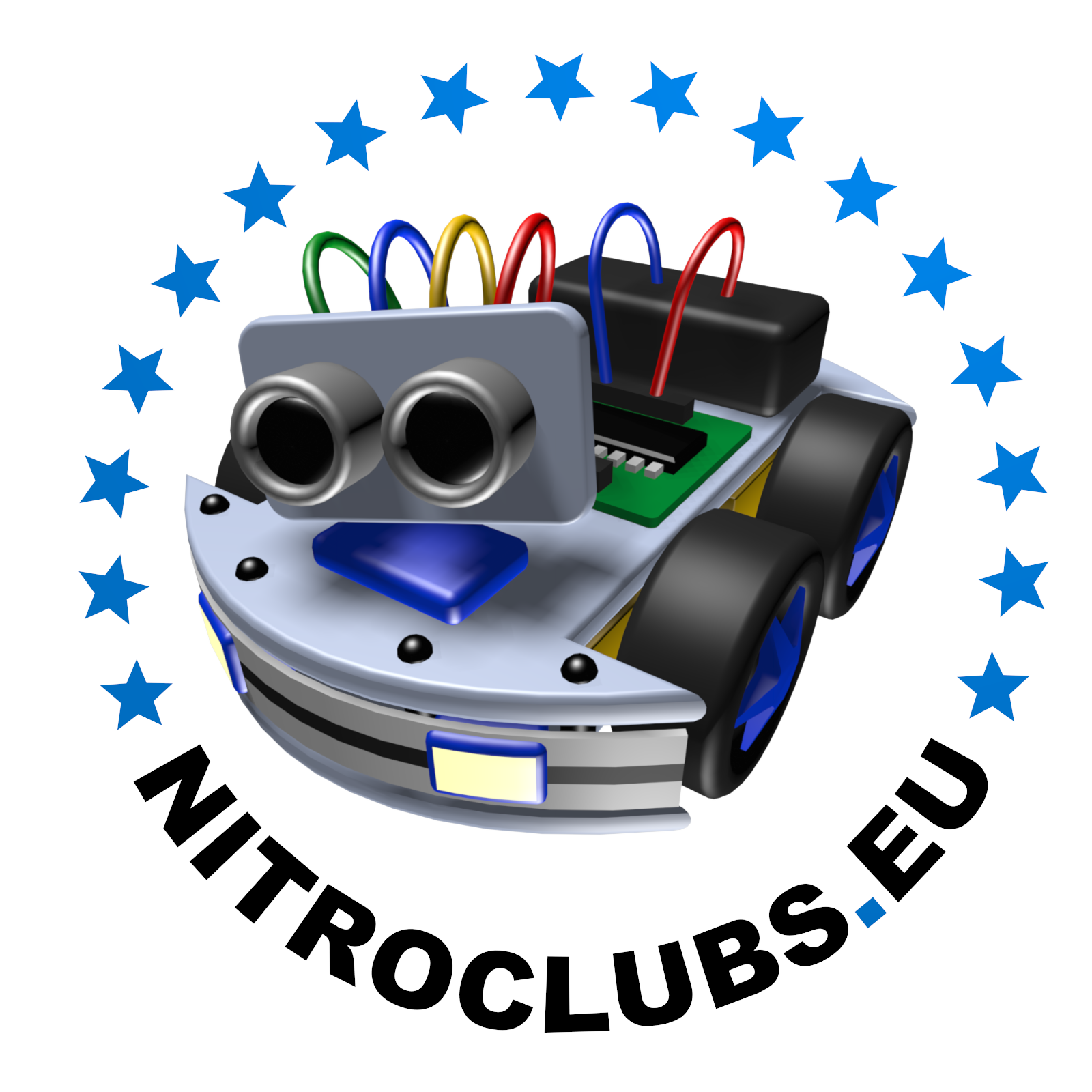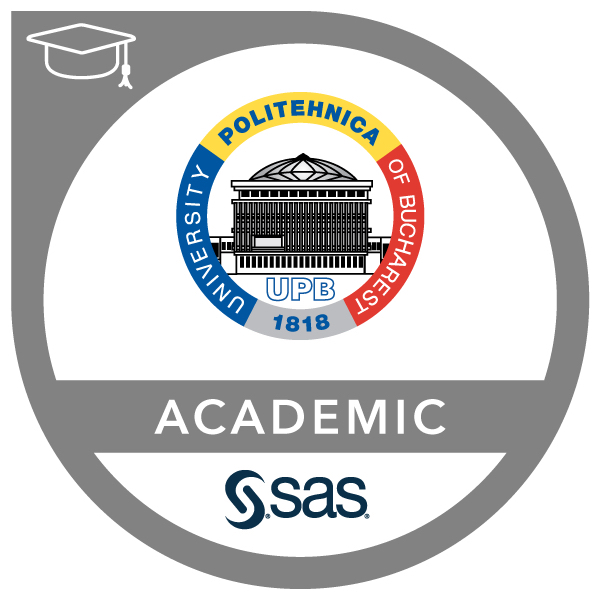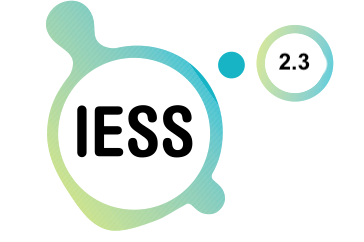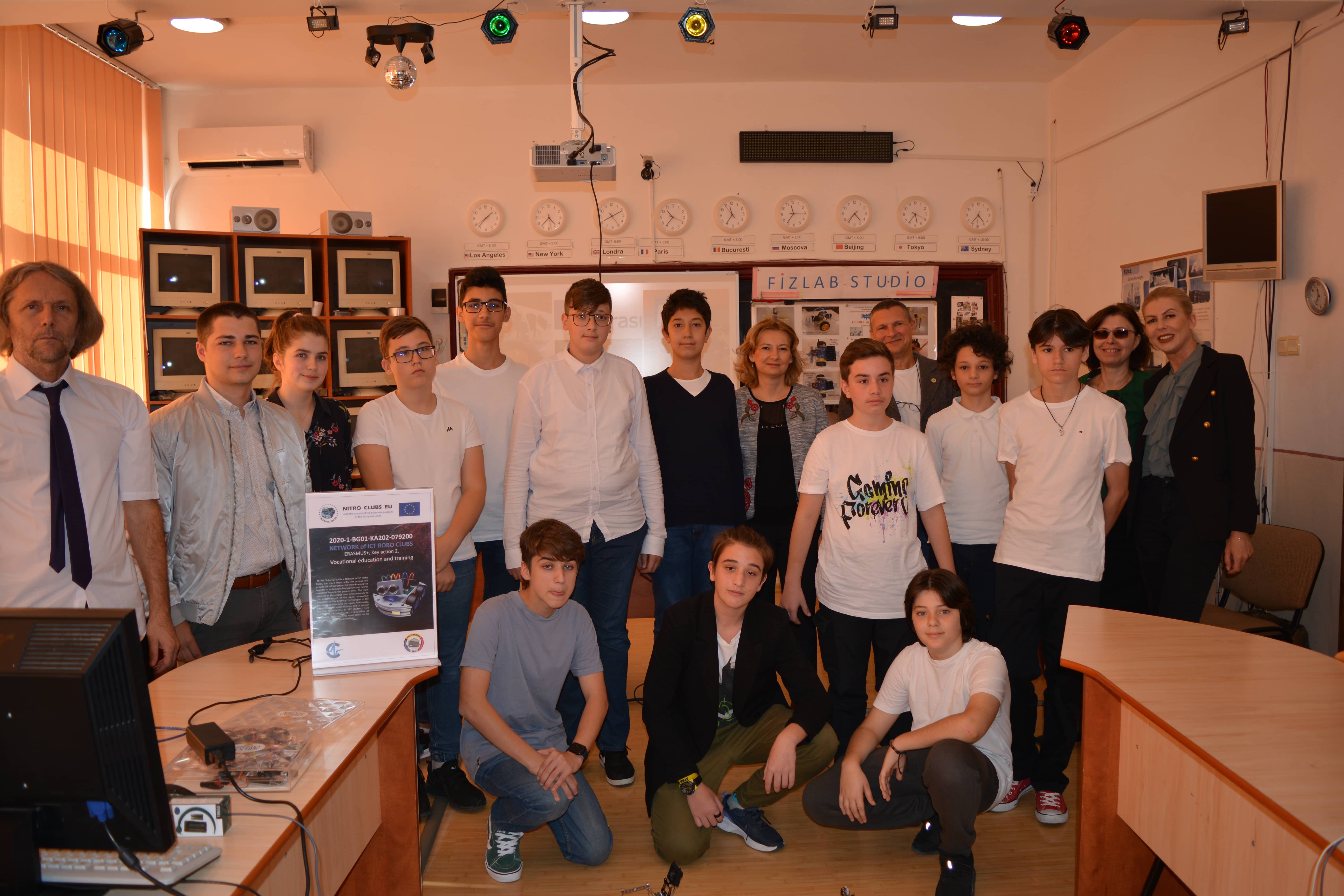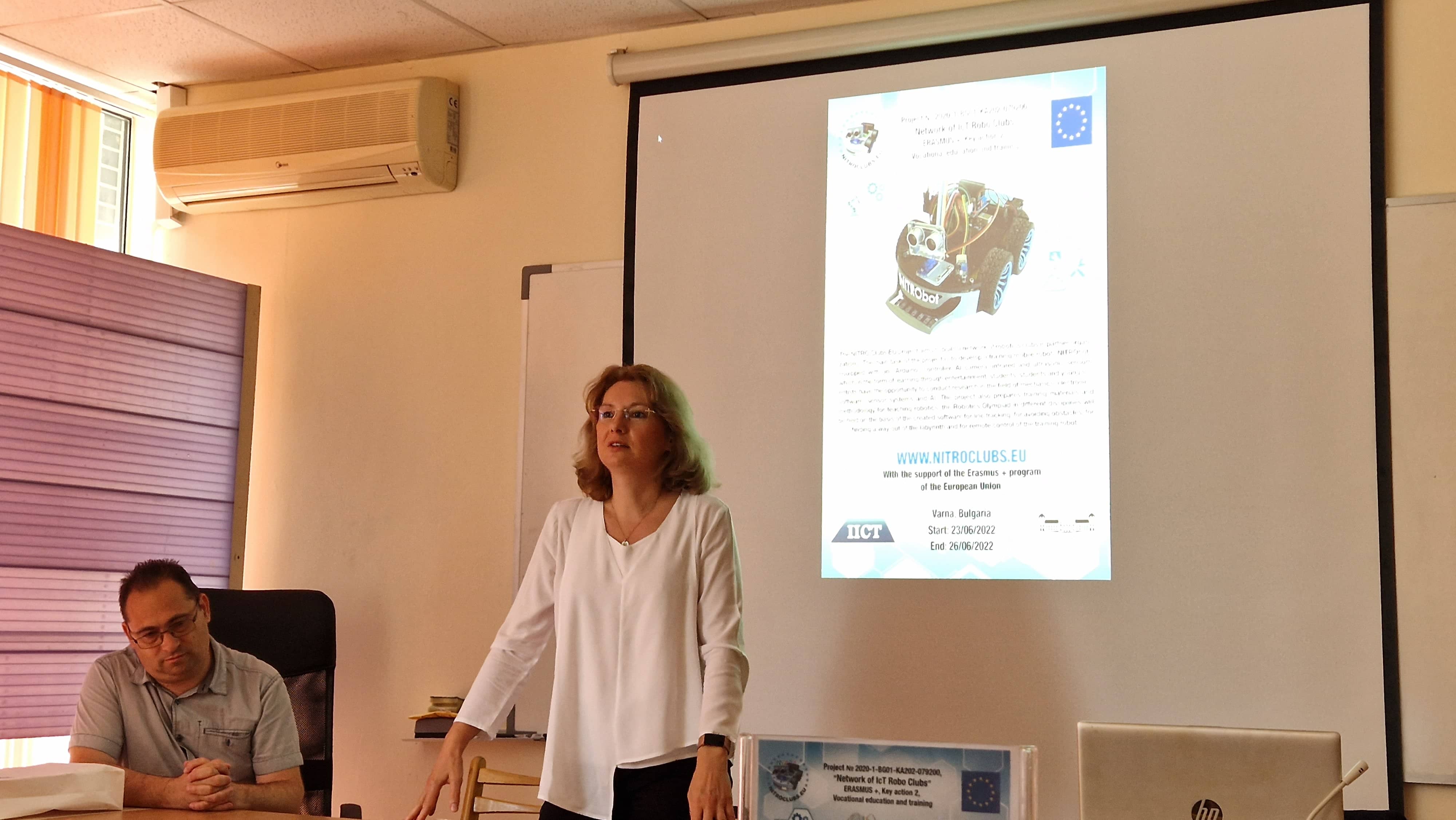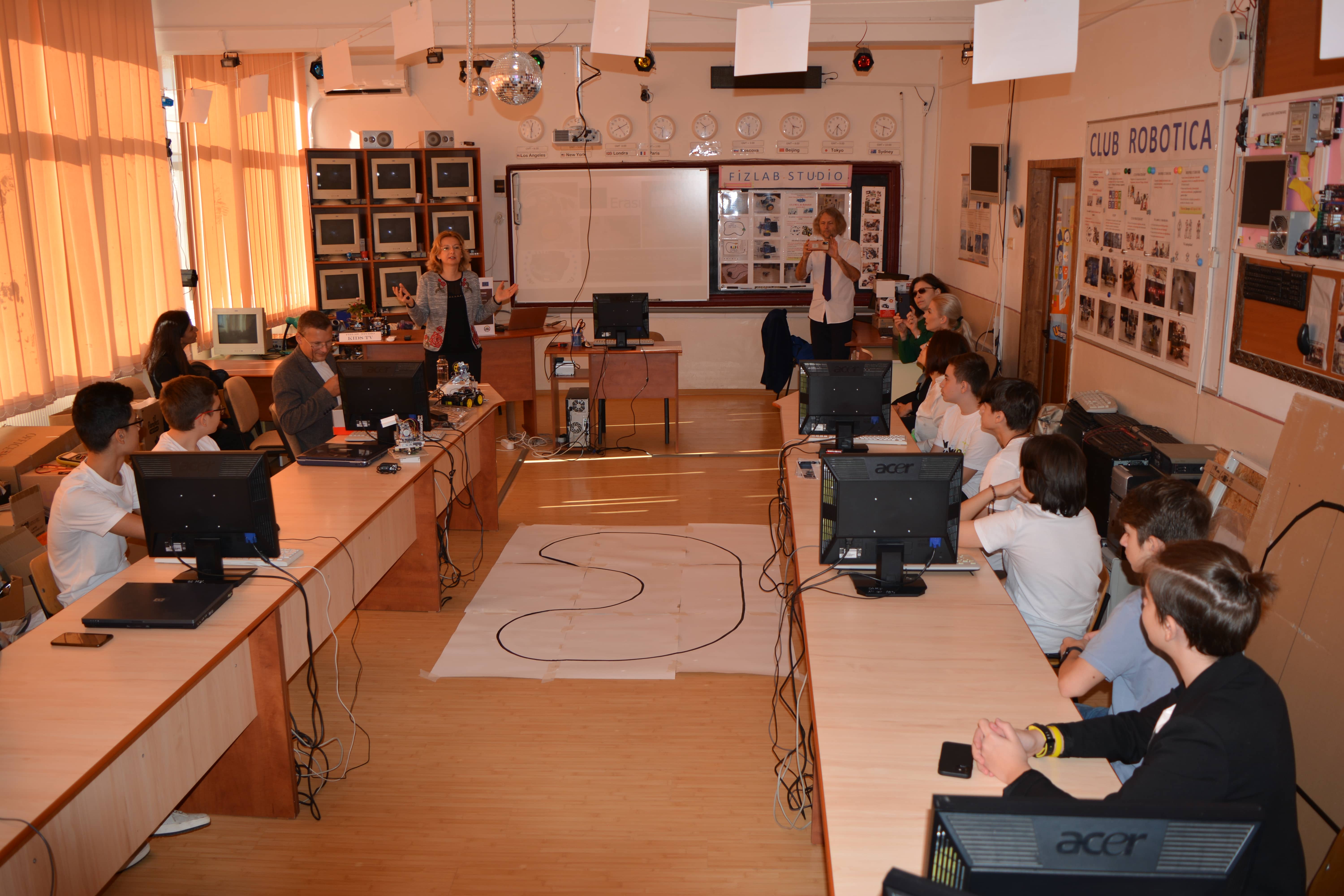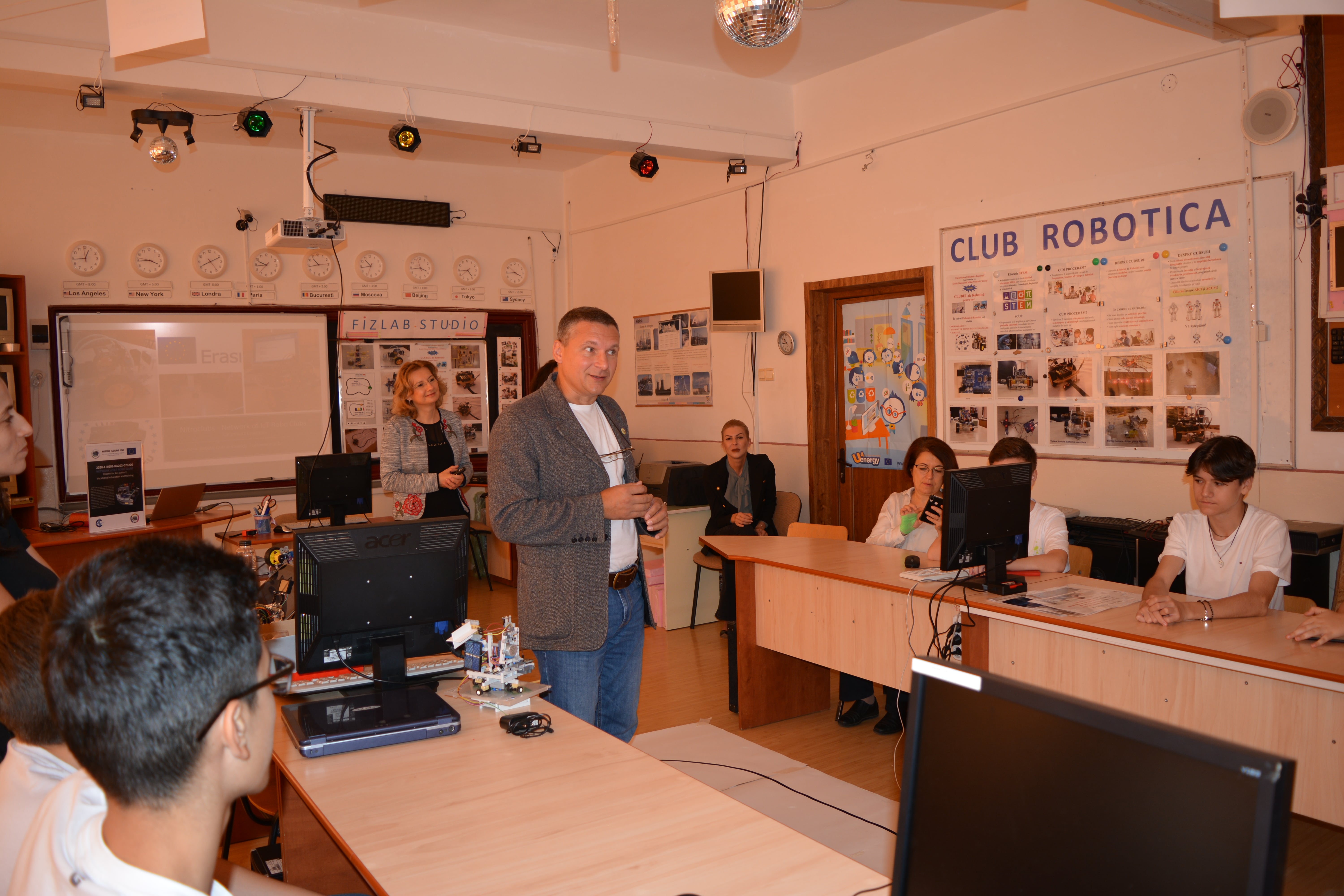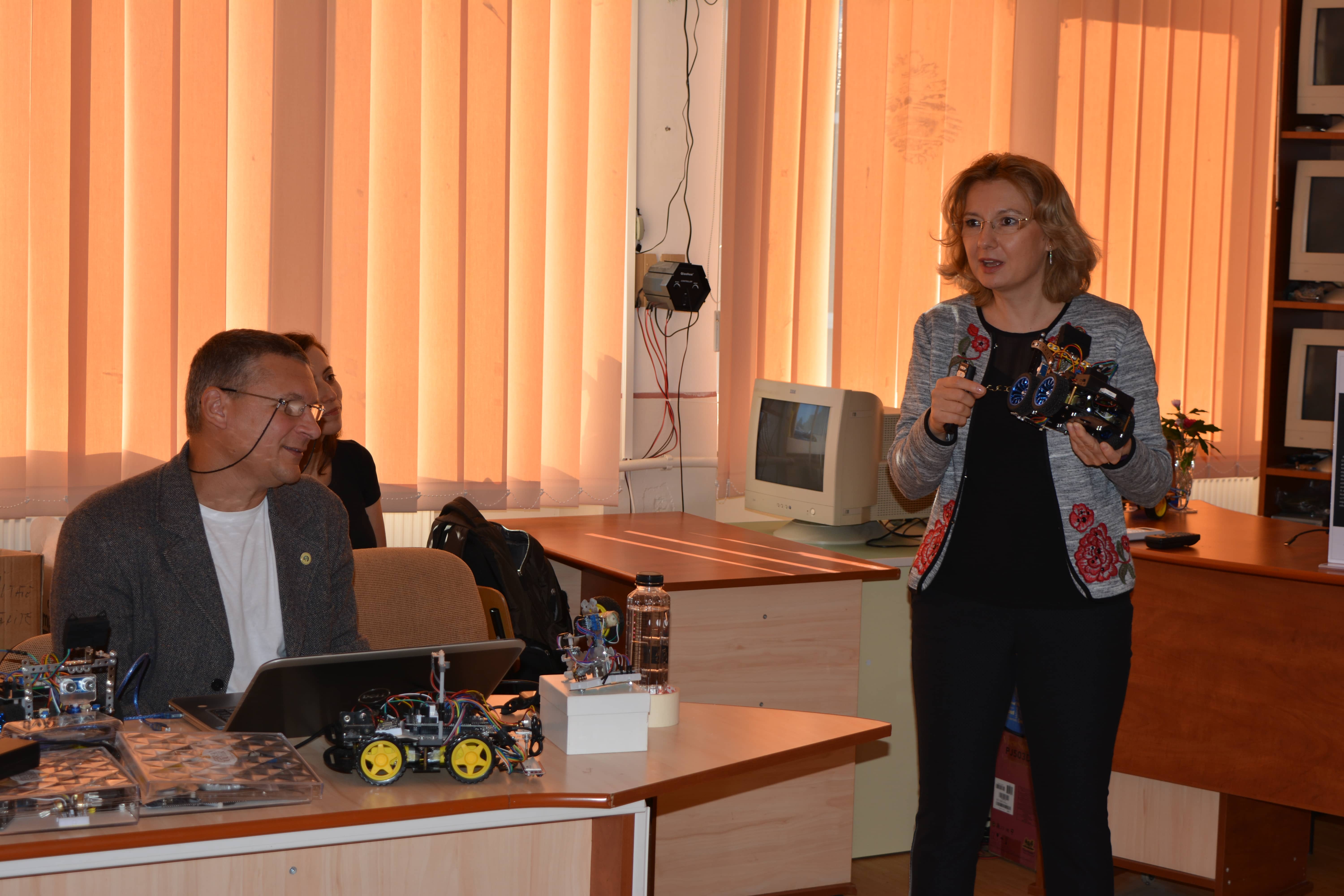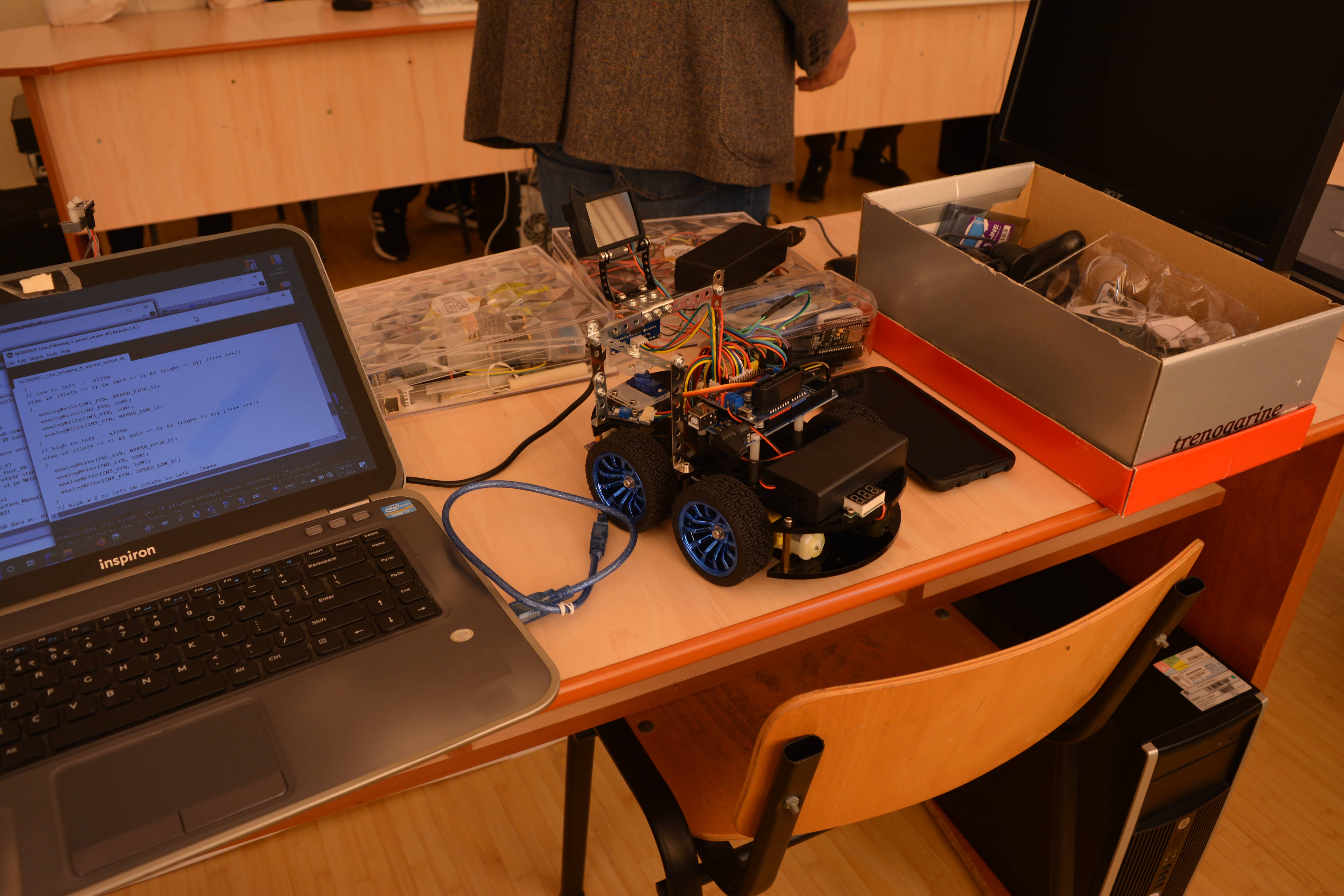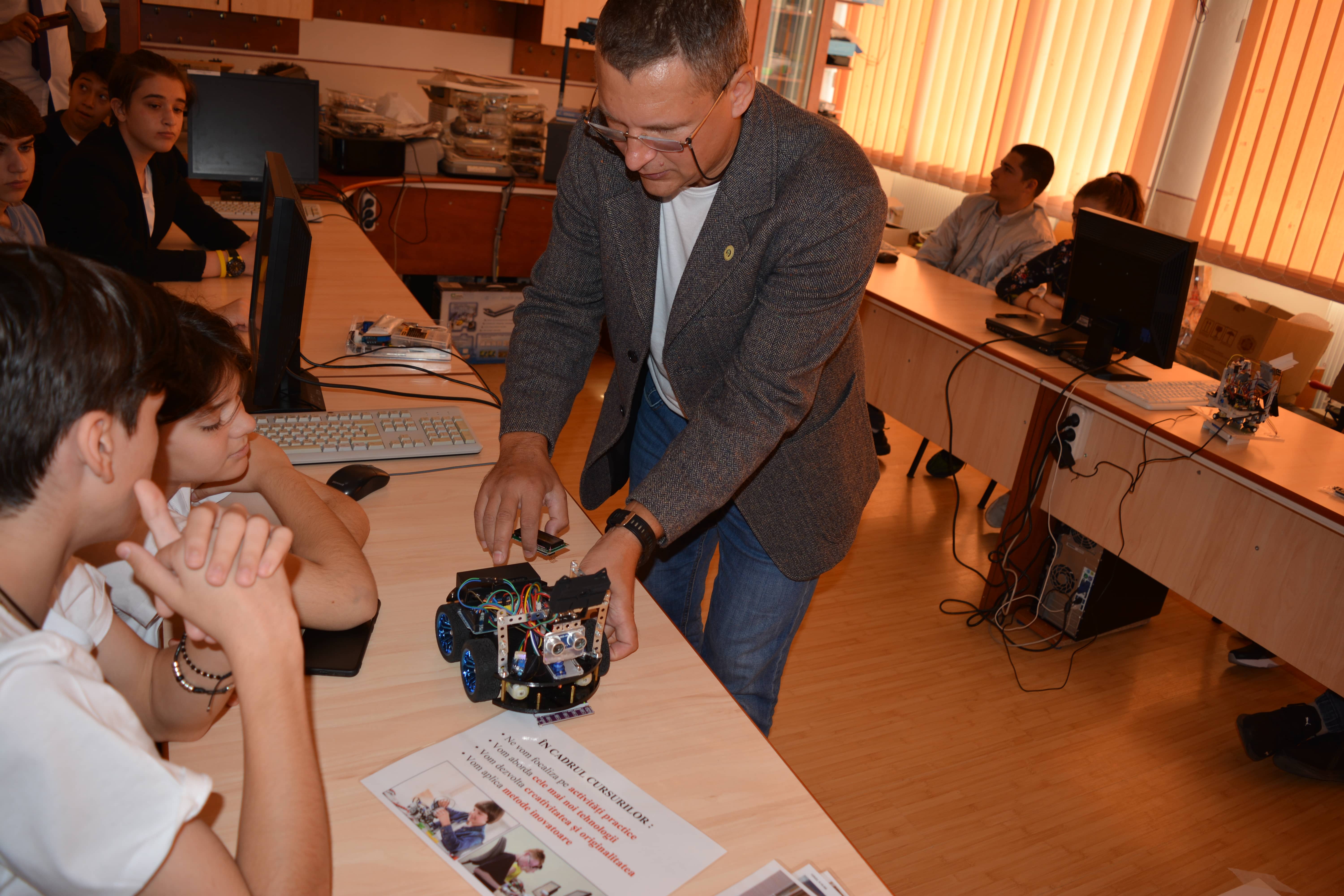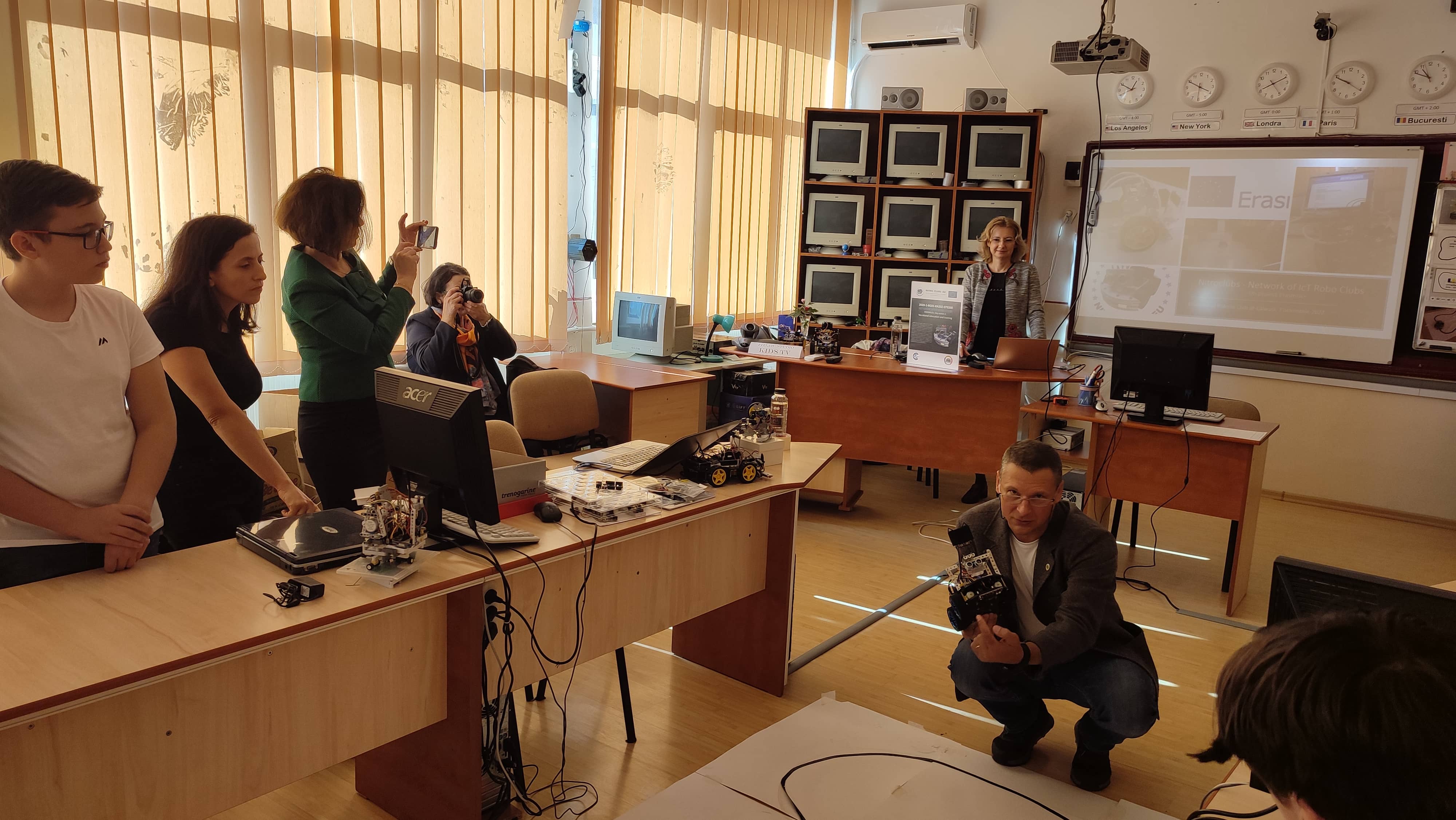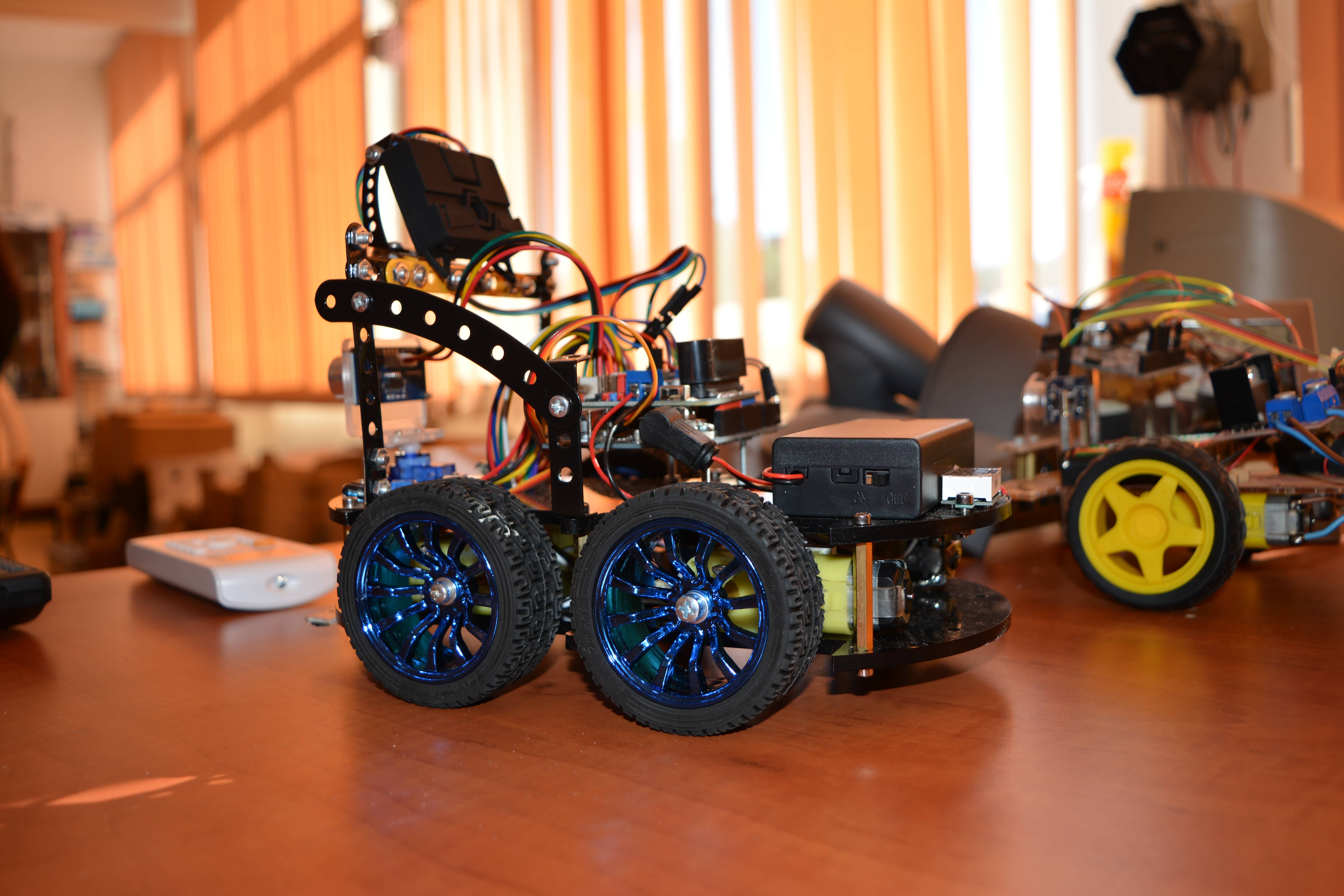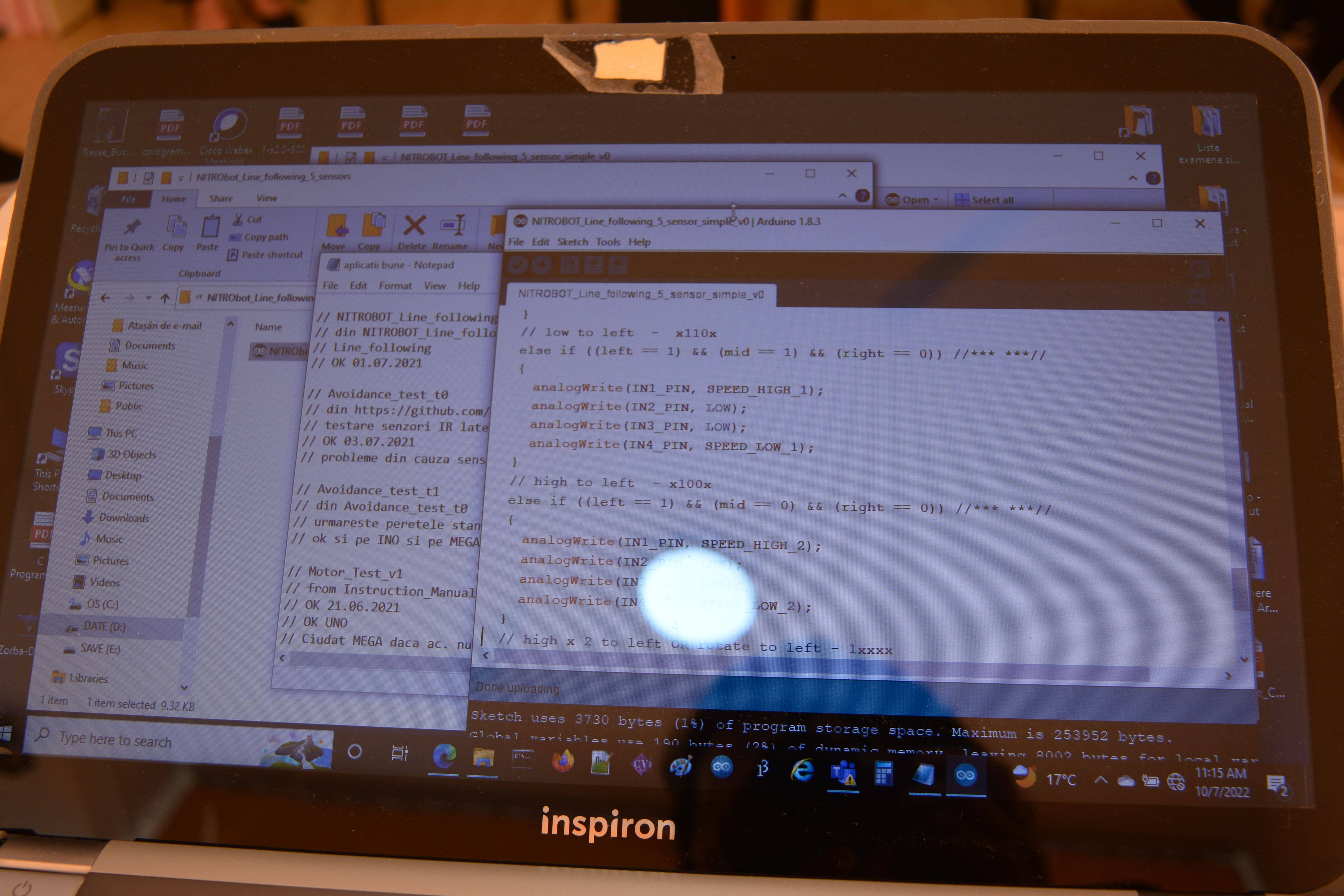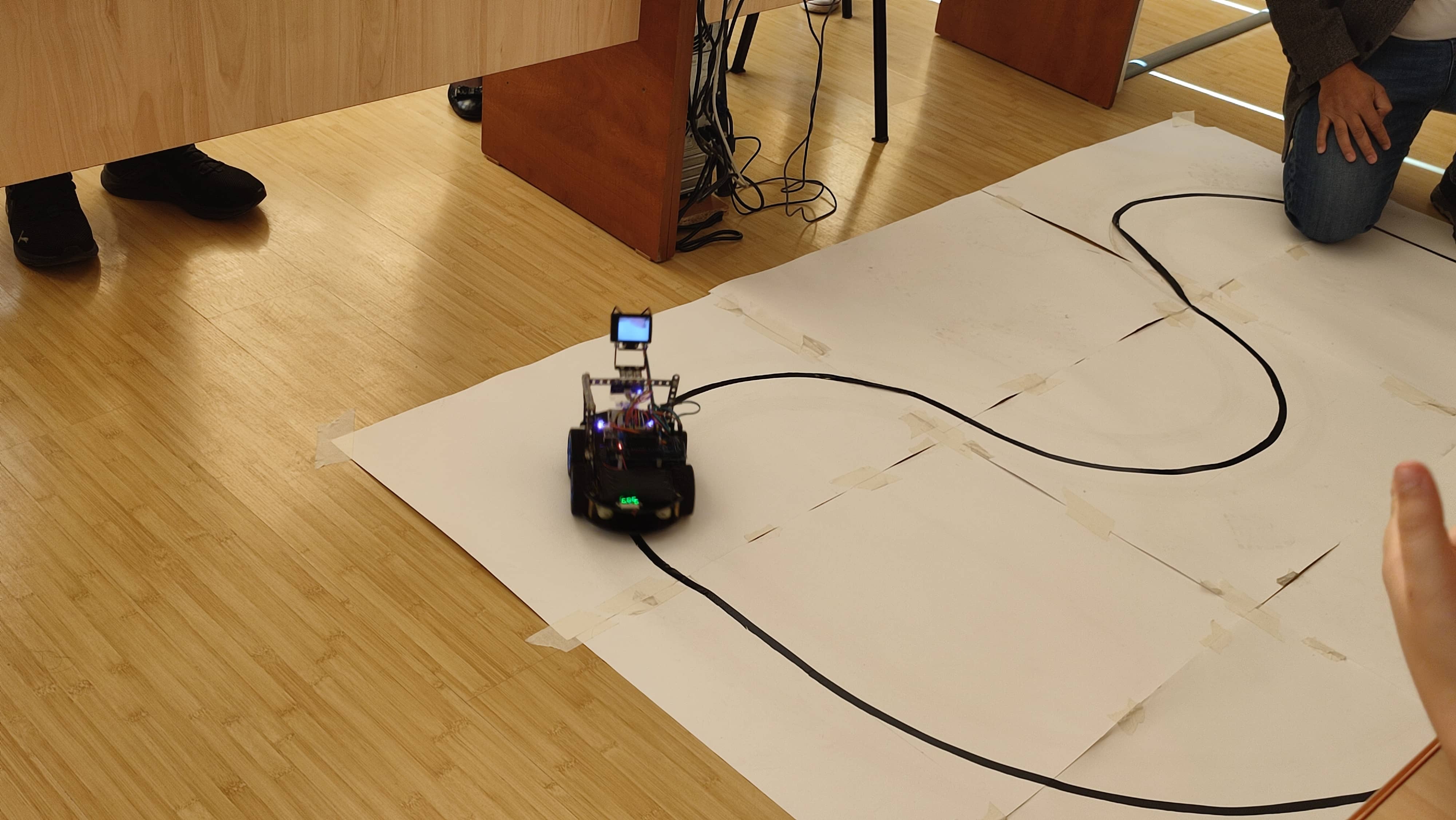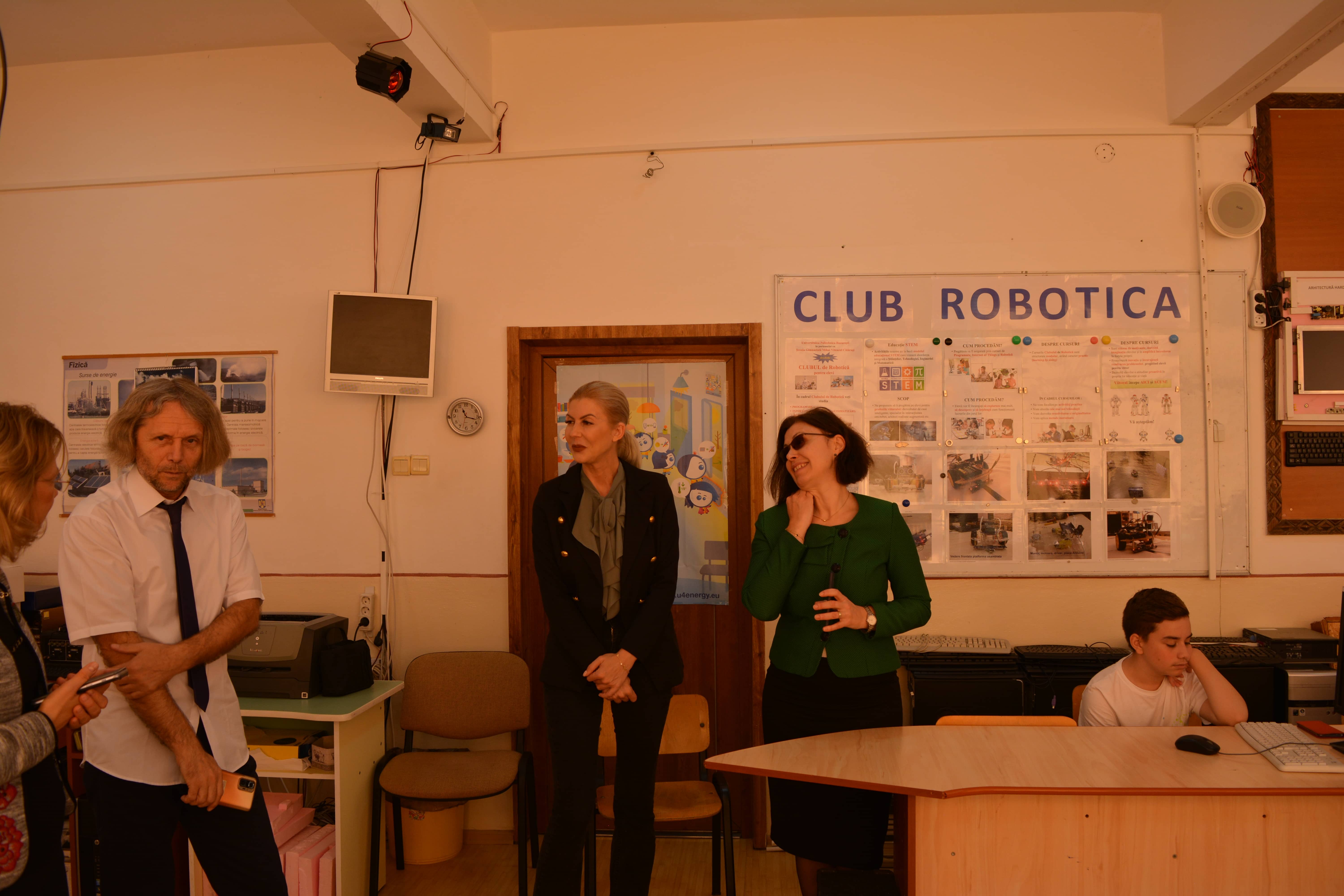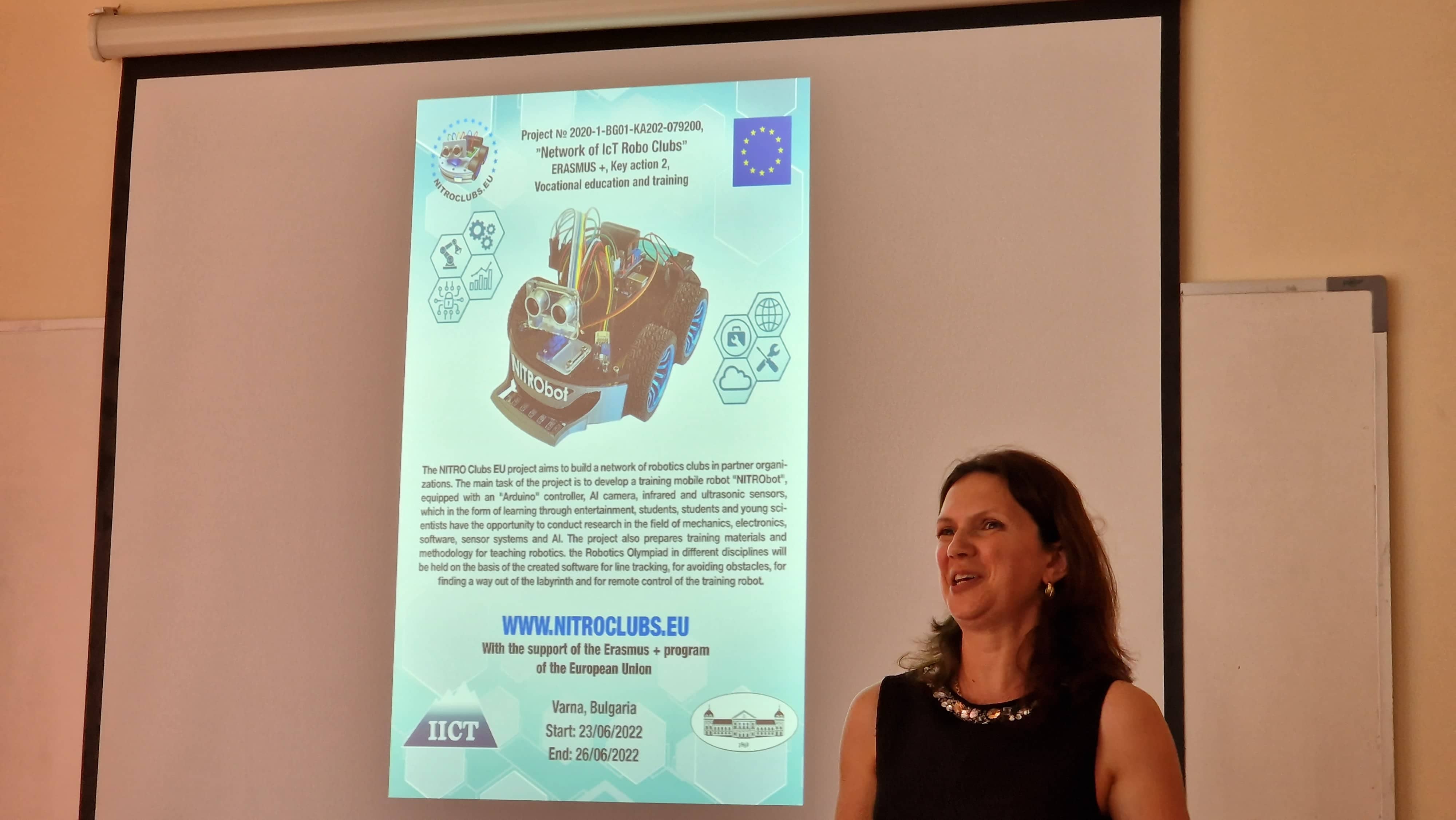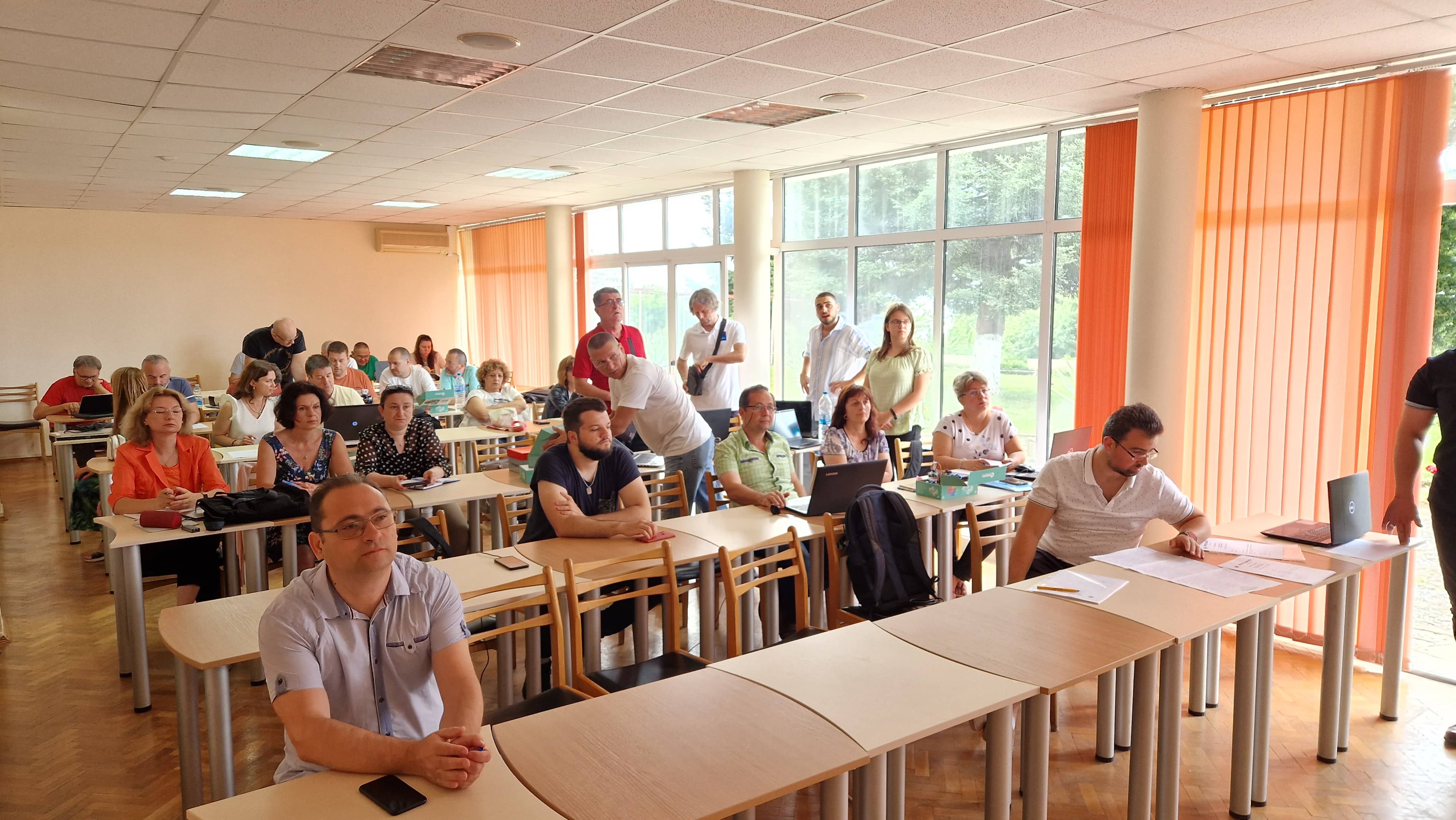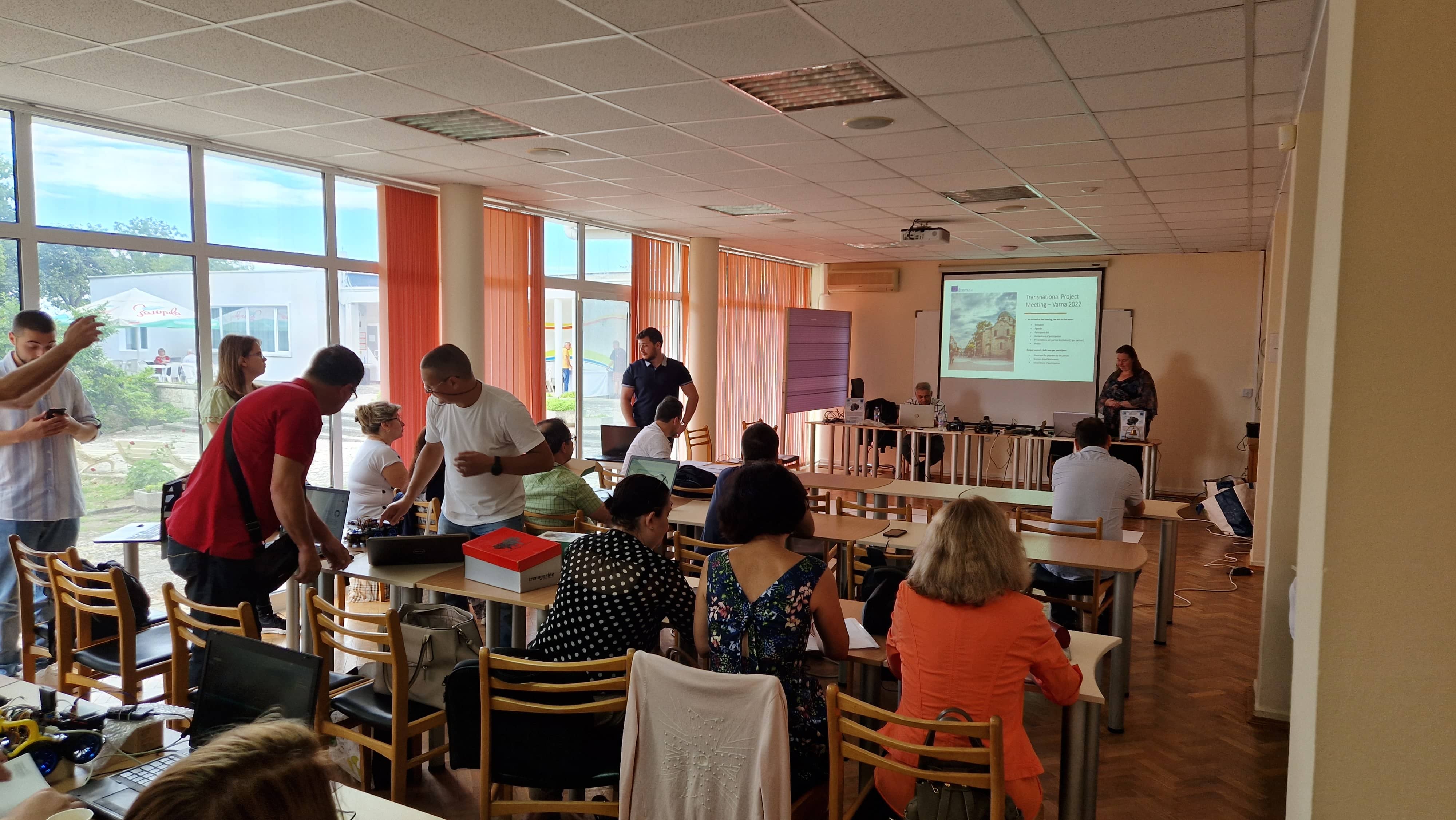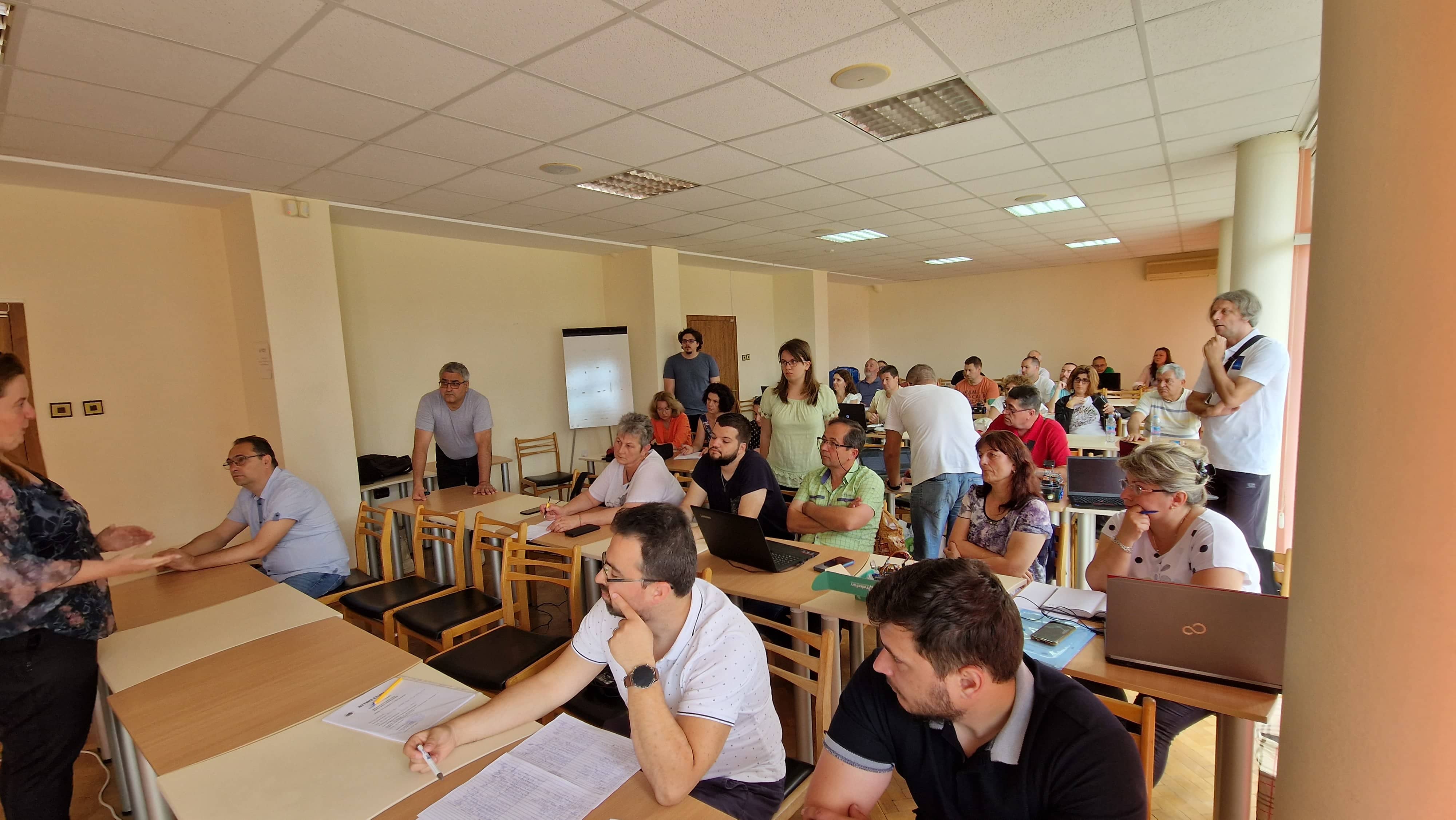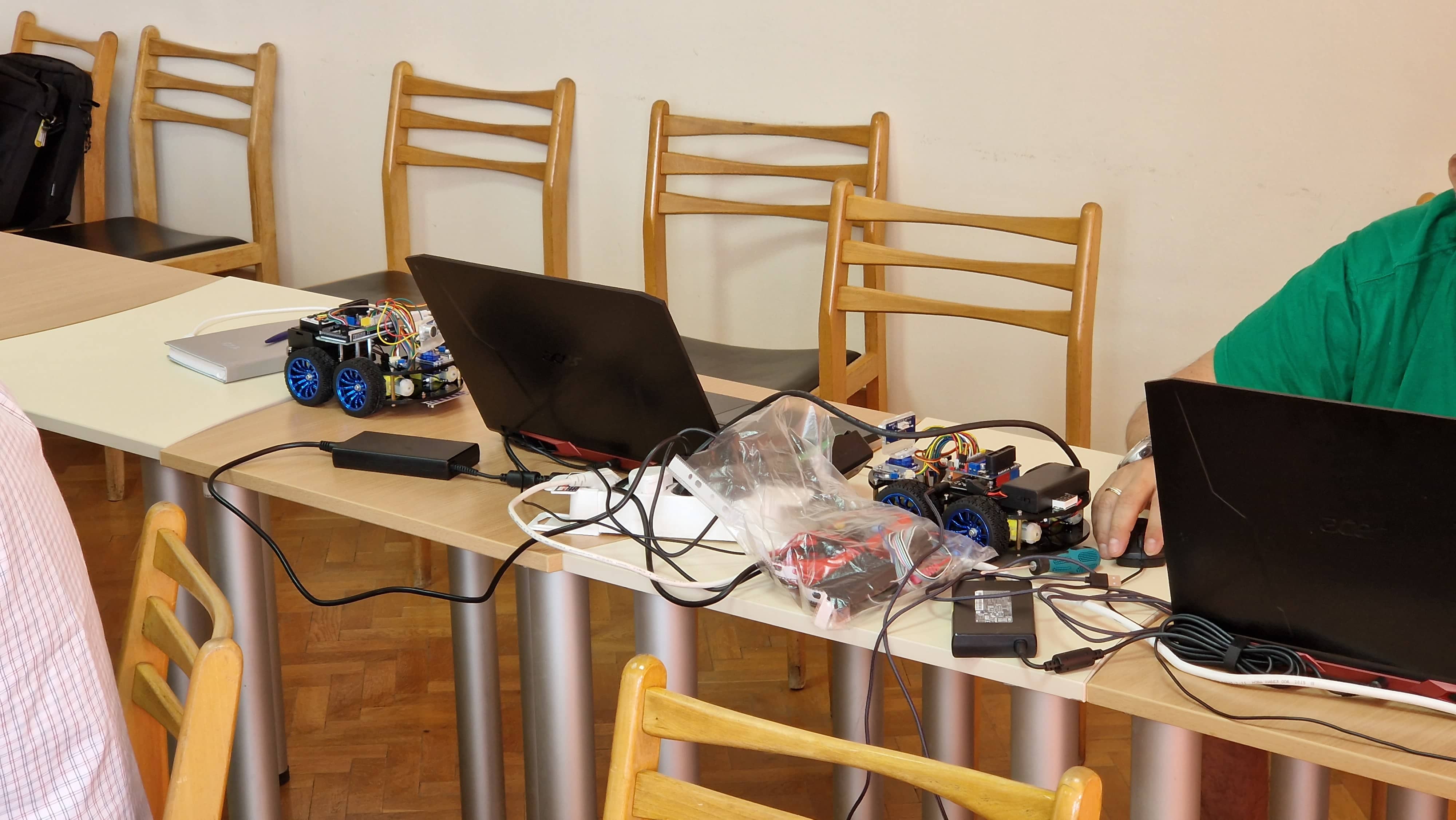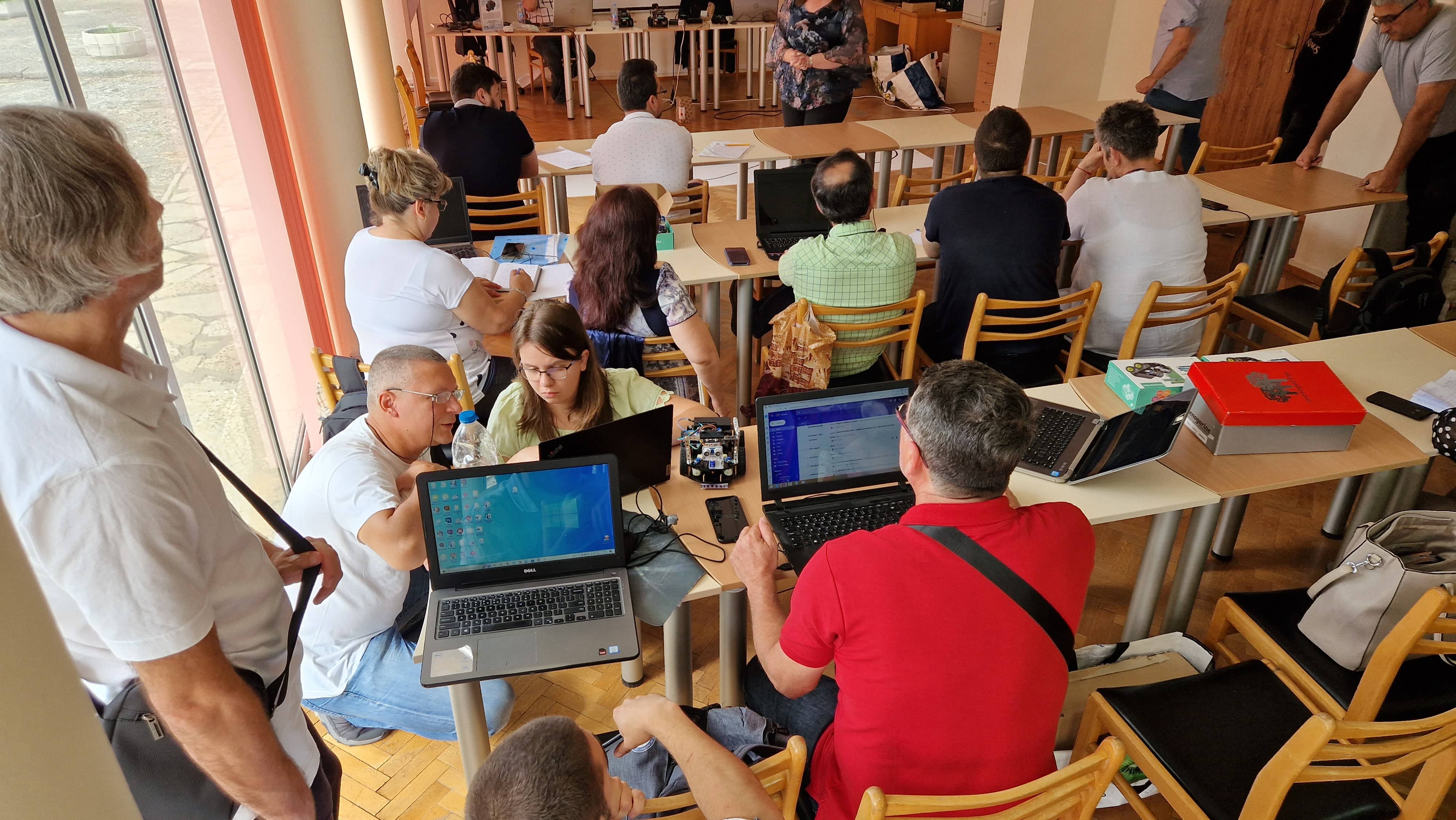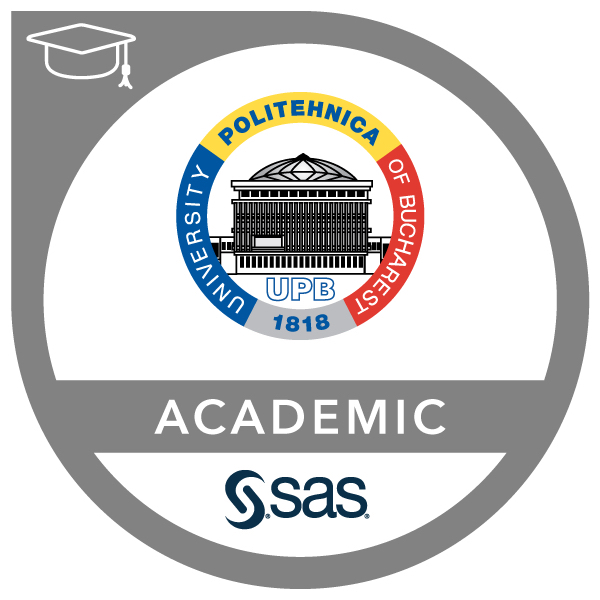About
The Smart Services and Robotics iLab establishes a collaborative, actionable knowledge sharing environment aiming to concord engagement in teaching, learning, transdisciplinary research addressing societal challenges and institutional activities, with the required practices, mechanisms and methods for digital skills creation.
Specifically, the iLab will create and develop activities that address the Smart Cities innovation ecosystem, where large categories of societal actors engage to integrate their various digital skills in conceiving, designing, implementing, and managing systems with humans in the loop.
STEM education can drive a deeper understanding of how various technologies can be used to better serve the communities in our cities and regions, both nationally and transnationally. Robotics, automation, algorithms, and advanced analysis of data produced through intense interaction between people and technical systems have the tremendous potential to advance towards a cleaner, safer, healthier, more sustainable and resilient way of living.
Therefore, the iLab aims at revealing consolidated responsibilities for technology and for public benefit in new service activities that require a deep understanding of Digital and of its disruptive transformation in all sectors of the society.
At iLab, we will explore inclusive, sustainable approaches to reveal bodies of actionable knowledge aiming to:
- help scholars, students, managers and citizens as well, engage in informed discussions about the role of digital technologies in service development;
- discover the implications of using advanced data analytics, advances in computational intelligences, and automation in smart city service design;
- apply advanced analytics to help explaining how complex decision-making for critical societal systems may evolve;
- explain the creation of digital artifacts using robotics in smart city service design, that require digital technologies for connection, collection, computation and communication, driving the complex integration of automation into existing urban systems;
- discover the foundations of complex smart city service design, with various use cases exhibiting intensive data processing, such as smart transportation and mobility, micromobility, smart healthcare, smart environment, smart home, smart education, to name but a few;
- expose the emergence of the value co-creation process that lies between traditional automation technologies and modern autonomous technologies in smart service design;
- reveal patterns of concordance of human activities and service robotics at the Society level, that are created with the ingenuity of the human mind, able to explain how value co-creation processes can be operationalized in the connected world.
Partnerships
The iLab's intention is to create a transdisciplinary, trans-institutional, and transnational dialog by bringing together various actors from diverse disciplinary backgrounds, with different domain expertise, to address situations of the Society's progression with much more consistency and responsibility.
At iLab, we approach the smart cities service development as a complex service design activity, and we acknowledge information exchange as a main characteristic of the services relying on advanced data analytics and robotic technologies. We are in the continuous quest for discovering actionable knowledge fostering human activities supported by machines.
We have established various transdisciplinary, trans-institutional, transnational activities and networking tools.
Analysis of smart cities and the complexity of their services @ Laboratory of Service Systems, Faculty of Informatics, Masaryk University, Czech Republic.
Innovation systems & sustainable management, S.I.Ma.S., University of Salerno
Fundamental and applied research in computer science, information and communication technologies (ICT), Institute of Information and Communication Technologies @ Bulgarian Academy of Sciences
Smart transport and passenger information service design, FEUP - Faculty of Engineering, University of Porto, Portugal
Advanced analytics in earthquake engineering, NIEP - The National Institute for Earth Physics, Romania
Innovation ecosystems and communities, Third Place Making Foundation, Switzerland
Erasmus for students
@ School of Engineering, Zurich University of Applied Sciences
@ Faculty of Informatics, Masaryk University, Czech Republic
@ Dipartimento di Scienze Aziendali - Management & Innovation Systems/DISA-MIS, University of Salerno
@ Department of Management, Information and Production Engineering, University of Bergamo, Italy
@ Faculty of Engineering - FEUP, University of Porto, Portugal
Projects
The iLab is currently hosting in partnership the activities of the Erasmus Strategic Partnerships for Vocational Education and Training project, Network of IcT Robo Clubs.
Nitro Clubs EU is an Erasmus+ project that has the following general objectives:
- to address a category of learning students that do not have easy access to technology, including “paid” classes on robotics
- to use affordable robot architectures, easy to reproduce and extend within a network of clubs where children can obtain professional guidance, and
- prepare these students for their potential engineering career, by teaching them professionally oriented skills in programming and electronics, adapted to their age and knowledge background
Main partners in the consortium
Coordinator - Institute of Information and Communication Technologies, Bulgaria
University Politehnica of Bucharest
Technical University of Kosice, Slovakia
Professional High School of Electronics and Automation, Sofia, Bulgaria
Professional High School of Natural Sciences and Mathematics “Hristo Smirnenski”, Pernik, Bulgaria
Professional High School of Electrotechnics and Electronics “M.V. Lomonosov”, Bulgaria
National Associations of Libraries and Librarians in Romania
Secondary School of Electrical Engineering, Kosice, Slovakia
More information about the aims and special objectives of this project can be found on the project's webpage: https://nitroclubs.eu/
Events
International Conference on Exploring Service Science (IESS 2.3)
The 13th edition of the well-established International Conference on Exploring Service Science (IESS 2.3) (bit.ly/3Z22Zuh), organized at the University of Geneva, on February 16-17, 2023, has ended successfully. The IESS Community has new members that will explore further the discovery of sustainable ways of setting up resilient and sustainable ecosystems by means of trans-disciplinary, trans-institutional and transnational services system.
IESS 2.4 will be organized by Masaryk University, Czechia.
News about the next edition and information on previous events can be found on the conference website, https://iess.online/
Stay in touch and follow us on LinkedIn.
Opening of the NitroClubs Robotic Club @ Călărași City
The UPB Team of the NitroClubs Erasmus+ project opened a new Educational Robotic Club in Călărași, on October 7, 2022. Călărași is a nice town located on the Borcea branch of the Danube River, 130 Kms from Bucharest.
The audience - students and teachers from “Mihai Viteazul” Gymnasium School and “Barbu Știrbei” High School - greeted us with an warm welcome and an extraordinary interest in the project's aims.
We thank Prof. Marin Oprea for the support granted to the project, as coordinator of the new NitroClubs Robotic Club and NitroClubs trainer!
1st NITROClubs Transnational Project Meeting
UPB Team has participated at the 1st NITROClubs Transnational Project Meeting and a Learning/Teaching Training event in Varna, on June 23-23, 2022
Gallery
- All
- NitroClubs @ Călărași City
- Varna
News
The newly established postgraduate continuing professional development programme "Business Intelligence Specialist" at the Faculty of Automation and Computer Science from University Politehnica of Bucharest, will welcome its first participants this Autumn.
Professor Leonard Walletzký, Head of Laboratory of Service Systems, from Faculty of Informatics, Masaryk University, visited University Politehnica Bucharest, on May 16-20, 2022, based on our Erasmus Mobility Agreement. His lecture, “Smart City and Complexity”, has been presented for a group of 4th year undergraduate and 1st year master students, from the Department of Automation and Systems Engineering.
Contact
ED Building, Room ED 102
University Politehnica of Bucharest
Splaiul Independentei 313, 060042-Bucharest, Romania
E-mail: monica.dragoicea[at]upb.ro

